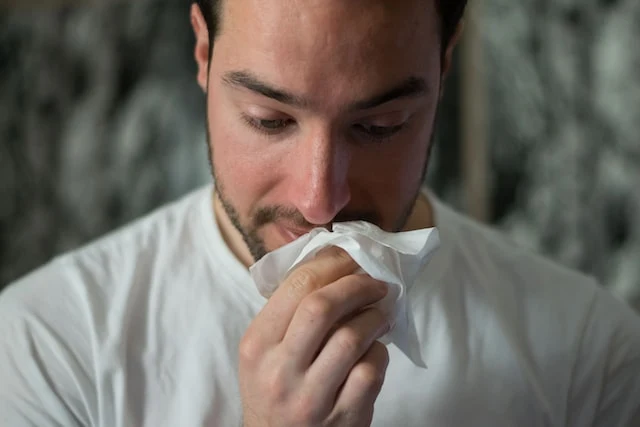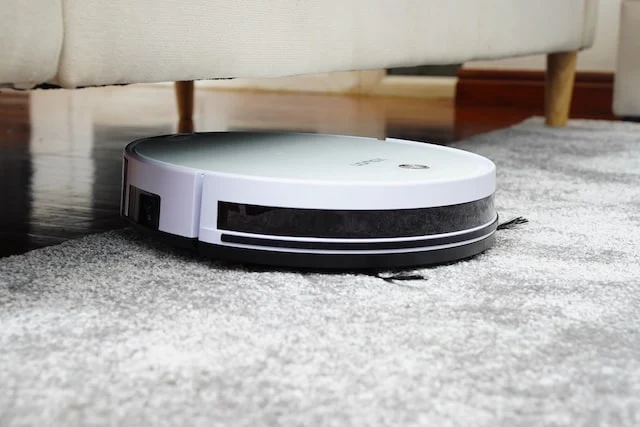Most people have experienced mild or moderate allergy symptoms throughout their lives. If you are one of them, keep in mind that you can improve your health just by making a few changes in your home. There are a lot of steps you can take to reduce allergens in your home. Here are seven ideas you can apply, and some of them won't even cost money.
Make Sure Your Carpets Are Vacuumed Frequently
If you can't tear up your carpet, ensure it's vacuumed frequently, especially if you just finished remodeling your home. The combination of dust and pet dander is what can cause allergies. Your best bet is to vacuum at least once daily with a HEPA filter cleaner. Don't just go over the surface – get deep into the carpet to remove all the allergens that are hiding there.
If
you have children or pets running around with bare feet on the floor while
you're cleaning, keep an eye on them. Make sure they don't kick up any dust
bunnies out of the way as they scamper around between sweeps. Also, be careful not to create more dust by
blowing out things like pillows when cleaning them. Try using a damp cloth
instead! If possible, use an air purifier in your bedroom because this area
tends to trap airborne particles better than other areas in your home.
HEPA
HEPA
filters are a great investment for allergy sufferers. They can remove allergens from the air and reduce the number of
allergens in your home by 90%. But they’re also expensive, so you have to
weigh your options carefully before making a purchase. If you have allergies,
it’s worth spending money on one.
Dust Regularly
Dusting
is one of the easiest ways to reduce allergens inside your home. Here’s what
you’ll need to do to reduce allergens in your home by dusting:
·
Use A Vacuum Cleaner. Vacuuming can remove dust mites and pet
dander from carpets and rugs. It can also clean
surfaces like curtains, upholstery, and hardwood floors. You may
need to use the vacuum's hose attachment to get into those tight spaces around
wall outlets or under furniture pieces.
·
Dust With A Cloth Made Of Soft Material Like Microfiber Fabric. These
can trap more particles than traditional cotton cloths do, and they prevent the
spreading of allergens from one part of your house to another.
·
Dust as often as you can. While vacuuming every day will help keep
allergens at bay, dusting should be done daily if possible. This process removes
visible dirt that accumulates on horizontal surfaces such as baseboards, window
sills, and tabletops throughout the day.
Keep
The number one way
to reduce allergens in your home is by keeping pets out of your bedroom. If
you have a cat or dog that sleeps with you, consider taking them to their bed
elsewhere in the house at night. This will limit their shedding on
your sheets and pillows, which is often responsible for triggering allergic
reactions in people. You can put pet beds near windows, so they feel like
they're part of the action but not on top of you when it comes time for sleeping.
Also, keep pets
away from pillows: If possible, keep all four-legged friends off any
area where there are pillows or duvets. Their fur can quickly get
stuck between these items, triggering an allergy attack during sleep.
Change
When
you spend time outdoors, allergens can collect on your skin and in your
clothes. When they get into your home, they're still there to cause problems.
As simple as it sounds, showering and
changing clothes after being outdoors is one of the best ways to reduce
allergens in your home. That way, when you come inside and sit down on the
sofa (or take off your shoes), no allergens are waiting for you!
Make
Mold is a common
cause of allergies and can be hard to eliminate. If you have mold, it's
essential to keep humidity levels low in your home. Mold needs
moisture to grow, so low humidity (under 50%) will help prevent mold growth.
Every time you take
a shower, any water that doesn't evaporate will remain on surfaces. There it
will create dampness and mold infestation if not properly dried up. Not to
mention – some water damage repairs that start only as mold
can be pretty costly. Because of this, one way to reduce allergens in
your home is by ensuring the humidity level in your house stays low enough so
that any water that enters dries up faster!
Store
When
you have allergies, it's essential to keep dust and other particles at bay. An
easy way to do this is by storing items
that attract dust in plastic containers whenever possible. This includes
pet food and litter (as well as the pet itself), as well as cereal boxes, and
other products that can easily be sealed in plastic bags. If you decide to put some of your stuff in rental storage, make sure to
declutter first and remove any dust from each item. Keep in mind that
people often forget to pack some items when renting storage; you can always create
a list to avoid this. When storing
clothing or books on shelves, use clothes or cardboard between shelves so that
they don't touch each other. This will prevent dust from settling on them.
You
Reduce allergens in your home doesn't have to be expensive, but it
does require some changes in how you live. If you're willing to make these changes,
which should be easy to do since they only take a few minutes of your time each
day, then you can reduce the risk of feeling unpleasant effects from allergens
in your home.













0 Comments